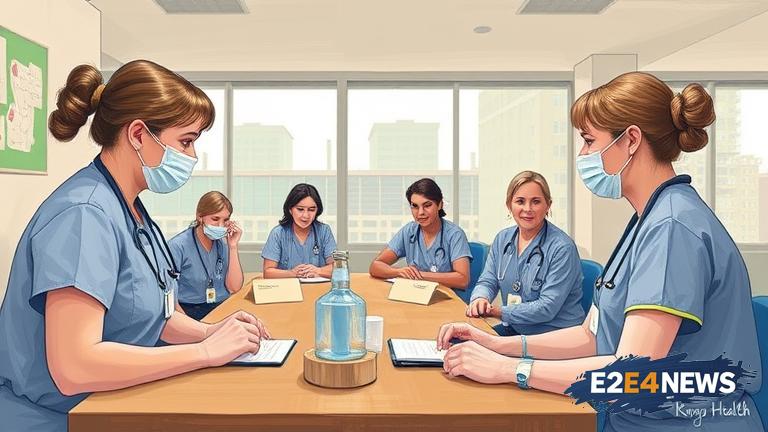The nurses union in Manitoba is speaking out against Shared Health’s drop-in sessions, which they claim are more focused on public relations than addressing the real concerns of staff safety. According to the union, these sessions are being used to improve the organization’s image rather than genuinely listening to the concerns of nurses. The union argues that the drop-in sessions are not an effective way to address the serious issues facing the healthcare system, including staffing shortages and burnout. They believe that these sessions are merely a publicity stunt, designed to make it seem like Shared Health is taking action to address the concerns of nurses. The union is calling for more meaningful engagement with nurses, including regular meetings and a commitment to addressing the root causes of the problems facing the healthcare system. They argue that the current approach is not sufficient to address the complex issues facing the system and that a more comprehensive approach is needed. The nurses union is also criticizing the lack of transparency and accountability within Shared Health, stating that the organization is not being honest about the true state of the healthcare system. They believe that the drop-in sessions are being used to spin a positive narrative, rather than acknowledging the challenges facing the system. The union is urging Shared Health to take a more honest and transparent approach, including acknowledging the problems facing the system and working with nurses to find solutions. They argue that this is the only way to truly improve the healthcare system and ensure that patients receive the best possible care. The nurses union is also calling for increased funding for the healthcare system, stating that the current level of funding is insufficient to meet the needs of patients. They believe that increased funding is necessary to address the staffing shortages and other challenges facing the system. The union is urging the government to take action to address the funding shortfall, including increasing the budget for healthcare. They argue that this is essential to ensuring that patients receive the care they need and that nurses are able to work in a safe and supportive environment. The nurses union is committed to continuing to speak out on behalf of nurses and patients, and to advocating for a better healthcare system. They believe that it is essential to prioritize the needs of patients and nurses, rather than the interests of the organization. The union is urging Shared Health to take a more patient-centered approach, including listening to the concerns of nurses and working to address the root causes of the problems facing the system. They argue that this is the only way to truly improve the healthcare system and ensure that patients receive the best possible care. The nurses union is also calling for increased support for nurses, including access to mental health resources and other forms of support. They believe that this is essential to ensuring that nurses are able to work in a safe and supportive environment. The union is urging Shared Health to take a more comprehensive approach to addressing the challenges facing the healthcare system, including increasing funding, improving staffing levels, and providing more support for nurses. They argue that this is the only way to truly improve the healthcare system and ensure that patients receive the best possible care. The nurses union is committed to continuing to advocate for a better healthcare system, and to speaking out on behalf of nurses and patients. They believe that it is essential to prioritize the needs of patients and nurses, rather than the interests of the organization. The union is urging Shared Health to take a more honest and transparent approach, including acknowledging the problems facing the system and working with nurses to find solutions. The nurses union is also calling for more meaningful engagement with nurses, including regular meetings and a commitment to addressing the root causes of the problems facing the healthcare system.
